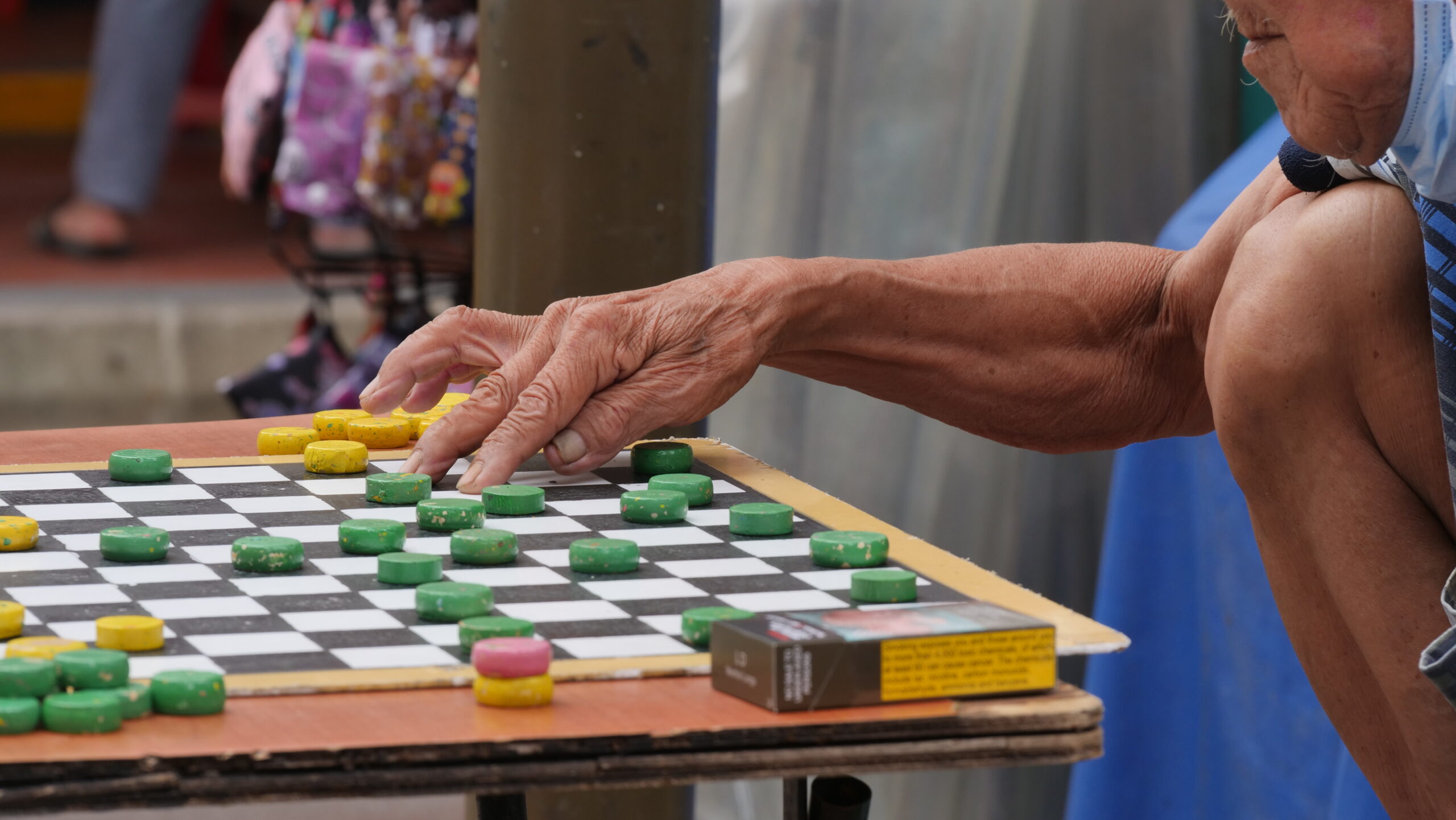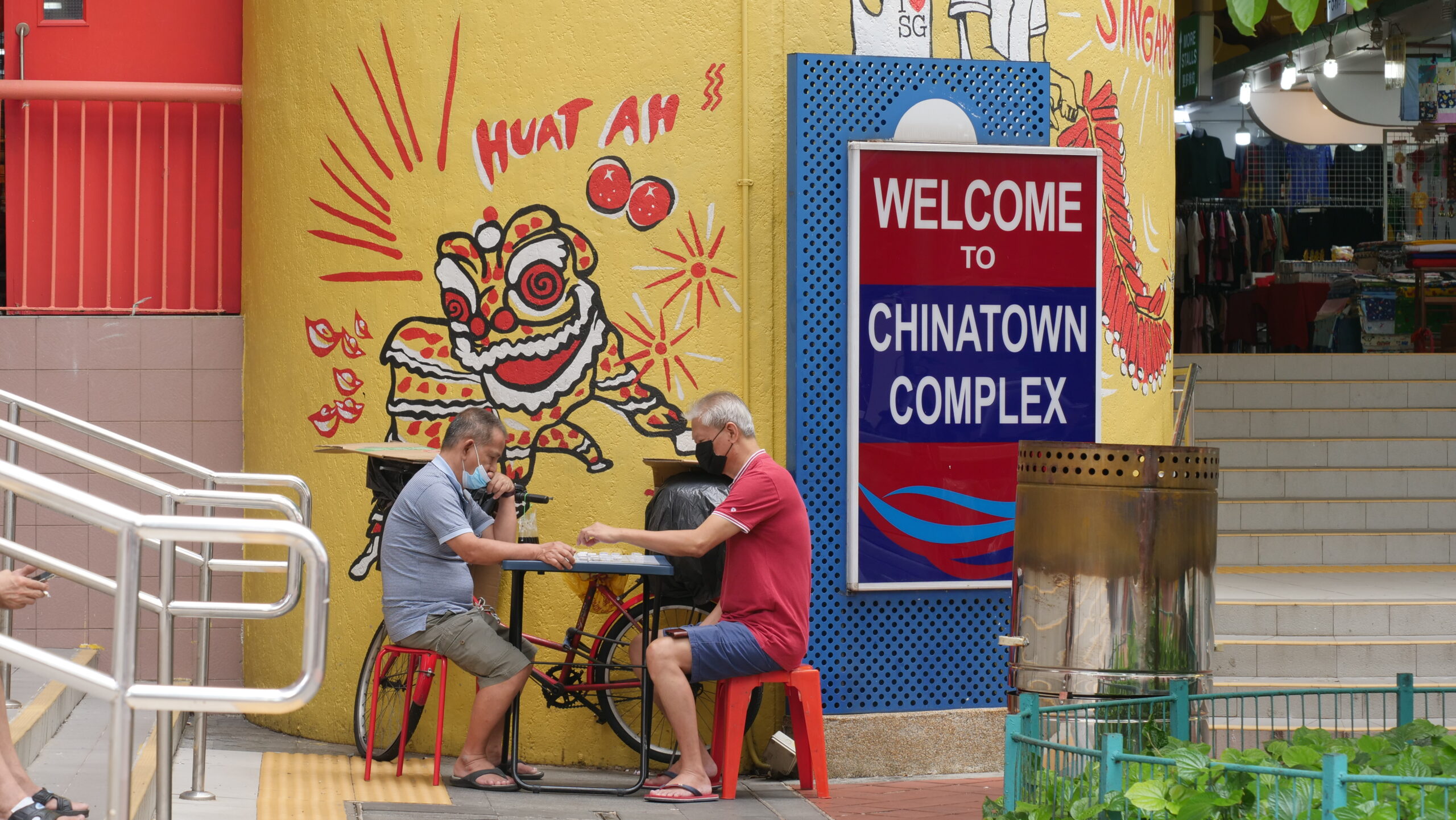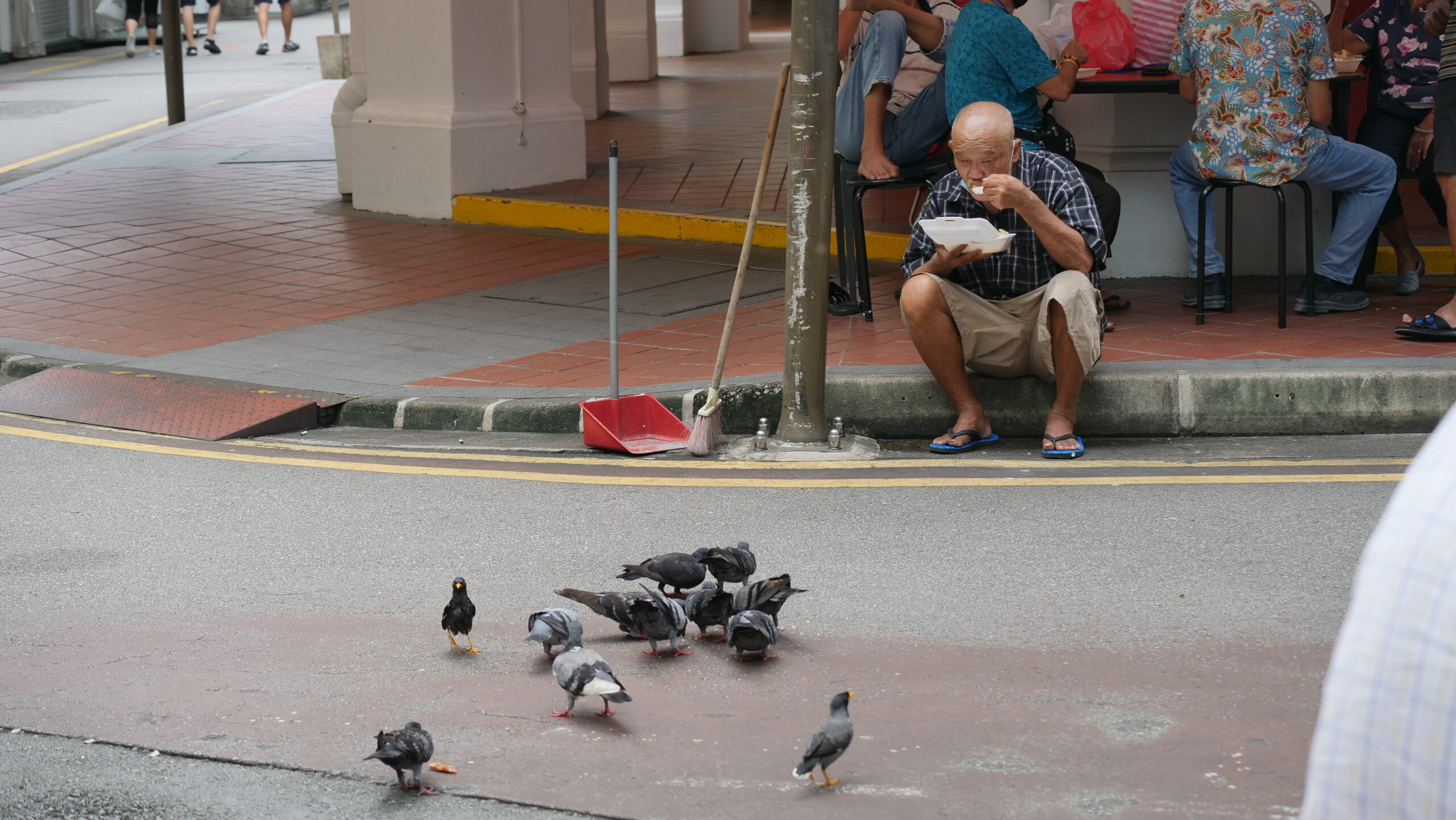Sofia vividly remembers the distressing words of an elderly woman she was working with in 2019. The 75-year-old was severely depressed and having suicidal thoughts.
“I wouldn’t kill myself in the house,” the woman told Sofia, a long-time volunteer at ElderAid, a Singapore Red Cross befriending and wellness programme for seniors in the city-state. “I would go to the beach and jump.”
As part of her outreach to seniors who live alone, she regularly meets elderly people who confide in her about their struggles, some of which include suicidal ideation.
“She actually had a plan of how she wanted to end her life,” Sofia recounted of the woman she’d met. The team eventually referred her to a professional counselling service. “The specifics of what she told us was very alarming.”
Cases such as this are not uncommon for Singaporean social service organisations working with the elderly, but the environment that they are now working in has only become more challenging. Elderly people have formed a significant percentage of Singapore’s total suicide mortality in recent years, with at least one-quarter since 2014 among those aged 60 years and older. But 2020 in particular saw an all-time high in suicide counts across all age groups in the city-state, with the highest increase observed amongst those 60 and older. Last year, 154 elderly people committed suicide, the highest number since 1991, the first year such statistics were recorded.
Experts are hesitant to draw a link between this and last year’s pandemic conditions, but the realities of Covid-19 restrictions are only impeding the work of anti-suicide programmes. With a rapidly ageing population and increasing trend of elderly people living alone, Singapore during the Covid-19 pandemic has found a ‘new normal’ of social isolation that has left seniors vulnerable to depression and loneliness. As the city-state continues to officially limit social interactions, some care services have been interrupted, leaving providers needing to find new ways to reach people in need.
| 2014 | 2015 | 2017 | 2019 | 2020 | |
| Number of Suicides of persons aged 60 and over | 126 | 115 | 129 | 122 | 154 |
| Suicide rate aged 60 and over (suicides per 100,000 persons aged 60 and over) | 19.0 | 16.4 | 16.6 | 14.2 | 17.1 |
| Number of Suicides | 415 | 409 | 361 | 400 | 452 |
| Proportion of suicides aged 60 and over | 30% | 28% | 36% | 31% | 34% |

In April 2020 the government imposed a “circuit breaker”, a nationwide lockdown restricting travel and gatherings, mandating schools and non-essential businesses be conducted online and forbidding dining-in at eateries. Though some care organisations are still conducting home visits with safety precautions for people who are willing, many other services and activities for vulnerable residents remain paused.
Singapore Red Cross, which has an ElderAid programme, can no longer do in-person home visits beyond high-risk cases. High-risk cases include those who do not have next-of-kin, those with physical health conditions such as blindness or deafness, those with mental health conditions, as well as those who are illiterate or do not have access to a phone or internet.
For the majority of their beneficiaries, the usual home visits have to be done via phone and video calls. Besides regular check-ins, the Singapore Red Cross also holds virtual birthday celebrations with the elderly and sends them regular deliveries of customised care packages as a reminder that they are cared for.
However, this digital transition is not seamless for many elderly, who are the least technologically savvy group of the population. While there have been national campaigns such as Seniors Go Digital Programme, as well as multiple agencies providing low-income seniors with new phones and tablets, the learning curve is steep.
Dr Helen Ko, an associate professor of gerontology at the Singapore University of Social Sciences, told the Globe that learning new skills is possible in old age, but it can be an intimidating process.
“Just put yourself in their situation – for the past 70 years you’ve never touched a smart phone and are so afraid of using the computer because you don’t know what to press,” Ko explained. “You can imagine it’s really challenging for them, which is why many of them appear to be resistant.”
Launched in May 2020 in an effort to equip the elderly with basic digital skills, the Seniors Go Digital Programme received an approximate participation of about 60,000 elderly by February 2021, just one-tenth of the 614,400 Singaporeans aged 65 years and older that year.
For some, pre-existing conditions such as hearing difficulties make it difficult to conduct constructive digital check-ins. As part of her befriending role, the long-term Singapore Red Cross social worker and volunteer Sofia said building rapport with the elderly over the phone is more challenging than in person.
“The flow gets cut. You ask them a question, they don’t hear it, you have to repeat. Then they’ll hear half of it, assume something and reply based on that.”
If I go to the Residents’ Corner, imagine all the germs on the surfaces that everyone touches. So I don’t go anymore. If I want to read newspapers, I will go buy them. I will not touch the ones at the Residents’ Corner
Today, as restrictions lift and in-person activities resume in Singapore, social service organisations have restarted some of their in-person services. However, they will still have to work around a new set of considerations – a ‘new normal’.
Tentatively, from 18 August onwards, Singapore will impose differentiated measures for those who have received the jab under the national vaccination campaign, allowing for more community activities among those who are vaccinated. Group sizes for social gatherings will increase from two, as of writing, to eight people.
In light of this, organisations like the Singapore Red Cross that are looking to resume group activities will begin checking on the vaccination status of elderly people before proceeding with programmes and group activities such as haircuts, exercise and art and craft activities.
This means not all elderly will be able to join. As of July, about 30% of elderly above the age of 70 and 15% of those between the ages of 60-69 years old have not been vaccinated in the city-state. This is for a myriad of reasons, including health concerns, especially for those with pre-existing medical conditions, as well as a general mistrust of the vaccine. A study conducted by the Centre for Research on Successful Ageing in July 2021 points to a general trend that elderly who are of lower education status and have less social contact are more likely to avoid getting vaccinated.
For now, the Singapore Red Cross still plans to include unvaccinated elderly in outings, but will require Covid-19 testing prior to the event. But some, despite being fully vaccinated, still prefer to err on the side of caution and remain isolated at home.

Mdm Tan, a 74-year-old woman who has been living alone for the past seven years since her husband’s death, used to go for walks around the neighbourhood or take buses around Singapore to avoid staying at home all day. She also used to reach out to her neighbours, inviting them to her house to spend time together.
However, ever since the pandemic hit, she avoids going out as much as possible, for fear of contracting the virus. As a person who used to actively reach out to her neighbours, she now has no idea how they are holding up. Most of them hardly head out anymore.
“I used to see them often at void decks or the neighbourhood. But now I don’t see them as much,” she said, recalling the names of a few friends whom she had not seen recently.
Despite the gradual loosening of restrictions, Mdm Tan still chooses not to hang around the neighbourhood or head to the Residents’ Corner, where the elderly in the neighbourhood used to spend time. She is particularly worried about socialising with seniors who refuse to get vaccinated.
“Some elderly people still don’t want to take the vaccination. If I go to the Residents’ Corner, imagine all the germs on the surfaces that everyone touches. So I don’t go anymore. If I want to read newspapers, I will go buy them. I will not touch the ones at the Residents’ Corner,” lamented Mdm Tan. She shares that she now spends her time watching comedies and animal documentaries, as well as calling up her relatives on the phone when she needs company.
“I am considerably fortunate. Those elderly who do not have people to call or do not know how to reach out are having it worse than me.”

In the months and years to come, in this ‘new normal’, social service providers will need to make new considerations when dealing with the elderly, including asking about vaccination status, digital literacy and willingness to interact with others – a prospect that causes some, like Mdm Tan, to feel anxiety.
Ko predicts the elderly who are unable to adopt the digital lifestyle and are not vaccinated will continue to be the most vulnerable demographic.
“That is the group that we need to do a lot more outreach in-person,” she said, adding that digital interactions can never replace in-person interactions.
The new normal exacerbates pre-existing isolation and loneliness already affecting many seniors in the city-state. However, she emphasised that suicidal ideation is not the only way that the elderly express their distress.
“There are different cries of help beyond just saying ‘I want to kill myself,’” said Selene Ong, the acting head of Singapore Red Cross’ Community Resilience Department.
She recalls the case of an elderly man in his late 70s who used to be cheerful, talkative and actively engaged in social activities. Since the pandemic and the increase in social isolation, he seems to have lost his enthusiasm and began questioning the purpose of life. This kind of transition, Ong explained, is evidence of someone crossing over to what her organisation would refer to as a “high-risk category” for self-harm.
“Over time, we have seen elderly who have suddenly lost a lot of weight. We don’t know where and why. They look like they are ten years older; they go from mobile to immobile.”
Ko said predicting the next few years in terms of impact on older people is like “crystal-ball gazing”, alluding to uncertainty around how the new normal may affect the provision of elder care. That said, she pointed out that elder care should be an industry regarded with higher priority in Singapore.
“I do think that there should be more recognition for elder care workers,” she said. “It is a tough job, very very difficult. So I do certainly wish that we could invest more resources in that and give due recognition.”
If you or anyone you know is suffering from mental health issues, the Samaritans of Singapore suicide hotline can be found here.

